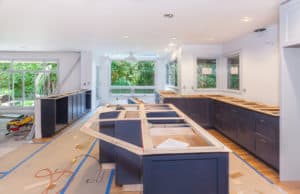Insurance for Fix and Flips: Finding the Right Policy for Real Estate Investors
The real estate market has been heating up again over the past couple of years, and property values are soaring in many areas of the country. This combined with the popularity of house-flipping shows on networks such as A&E, Home and Garden TV, and CNBC have brought many new investors into the market. On TV, flipping a house looks easy, but it is difficult to cover all the details in a half-hour or hour-long show. One area most house-flippers do not pay enough attention to is investment property insurance. 
It is understandable that investors would overlook property insurance. When you are prospecting for a ‘fix and flip’, the things that are foremost in your mind are the purchase price, rehab costs, projected market value after the property is fixed up, and lining up financing and/or other investors to make the deal happen. With these critical factors to focus on, insurance is usually an afterthought; something that can be set up in just a few minutes after the deal closes.
The Insurability of Fix and Flips
Investors who buy house flips require a different type of insurance policy than the standard homeowner’s policy. Many insurers do not want to write this kind of policy at all. There are several reasons an insurance company would view fix n flips as too risky to insure:
- Multiple Investors: Many house-flipping deals involve several investors. Insurers want to be able to accurately analyze risk, which can be difficult when they are dealing with a lot of people they do not know.
- Different Entity Structure: House-flippers often use LLCs, trusts, and other entities designed to minimize the personal liability of the investors. Although this may be a good strategy for investors, it poses a greater risk for the insurer, especially if the entity has multiple owners.
- Multiple Contractors on Site: Insurance companies know that you have to bring in subcontractors to rehab a property. What they do not know is whether or not each person working on the property will be licensed. Many fix n flip investors have ‘handyman’ experience, or they have some family or friends who know how to do certain jobs cheaper than a licensed, bonded, and insured contractor. If you plan to use people who are unlicensed on the rehab, this could be a problem for some insurers.
Types of Policies Home Investors May Need: Insuring a fix and flip property can get complicated. Investors are often surprised to learn that the company who insures their home and vehicles does not want to insure them for a house flip. This is because, in addition to the aforementioned risks, investors may need up to three different types of policies during the flipping process.
In most cases, investment properties are vacant at the time of a sale. So as soon as the home is purchased, it would require vacant property insurance. Within a few weeks, the property rehab begins. At this point, the investor would need to switch from a vacant property to a builder’s risk policy. Once the rehab is completed, they would need to go back to a vacant property policy until the house is sold, or switch to a rental property policy if they decide to rent it out.
Locating an insurance product that accommodates the needs of house-flippers can be challenging. Many insurers will not touch this type of risk, and investors need to shop around to find the right policy. The best place to start is to speak with an independent insurance agent like me. Independent agents work with several of the top insurers in your state. We are not captive to any particular carrier, and as such, they can do the shopping for you and find the right policy to fit your specific needs. Have questions? Give me a call at (301) 874-0772.




